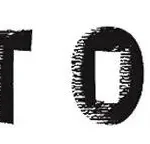To access the Herald’s local coronavirus/COVID-19 coverage, click here.
TRENTON – The Supreme Court announced July 15 a series of measures aimed at protecting the rights of both tenants and landlords during the COVID-19 health crisis.
According to a release, evictions of residential tenants are currently suspended until two months after the conclusion of the COVID-19 public health emergency, under an executive order from the governor. With limited exceptions, evictions of residential tenants cannot proceed until Oct. 1 unless the executive order is rescinded.
While landlord/tenant trials have been suspended by the Supreme Court since March 16, more than 17,200 landlord/tenant complaints have been docketed since that time without being served. An additional 12,500 cases that were pending, as of March 16, have yet to be resolved. With input from tenant advocates and landlord representatives, the court authorized permanent and interim measures to support the resumption of landlord/tenant case processing and provide litigants with information regarding available resources.
For example, the Supreme Court’s order requires landlords subject to the federal Coronavirus Aid, Relief and Economic Security (CARES) Act to submit a certification ensuring their compliance with the act. The court’s order also provides that evictions can only occur in emergencies and cannot be based on nonpayment of rent. Trials can only be held in the event of the death of a tenant or if the court determines that an emergency exists, such as documented violence, criminal activity, or other health and safety concerns.
Settlement conferences in landlord/tenant cases have been held in some counties with some cases being resolved. Either party can decline to participate in a settlement conference without penalty.








